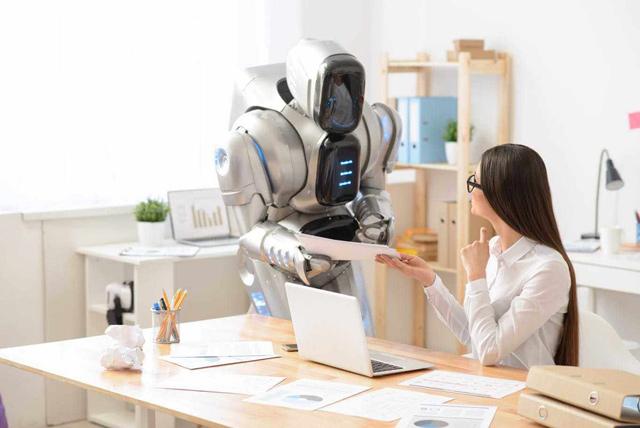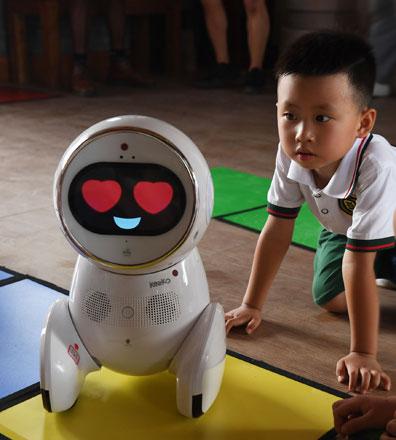You are here
We are not robots
By Dr Tareq Rasheed , Family Flavours - Nov 29,2020 - Last updated at Nov 29,2020

Photo courtesy of Family Flavours magazine
Did you know that in the next five years more than half of all workplace tasks will be performed by machines? Many jobs will cease to exist. The World Economic Forum warns of the impact of automation on working people.
Robots are being brought into workplaces across the globe, working alongside employees in operating rooms to manufacturing warehouses to restaurant kitchens and even classrooms.
Many kindergartens across China have adopted an artificial intelligence robot to help interact with students at thousands of schools. The robot, called KeeKo, interacts with young children by playing games with them, singing, dancing, reading stories, carrying out conversations and even solving mathematical equations with them!
Researchers see robots in the classroom as the next step in educational technology. However, they lack the empathy and insight a human teacher brings to any educational experience.
Robots cannot express feelings or a sense of belonging. There are even cases where they have made huge mistakes. Deaths have been linked to robotic surgical systems, such as the death of a woman who died during a hysterectomy when the surgeon-controlled robot accidentally cut off a blood vessel.
Advantages of robots in the workplace
Robotic capabilities are growing. If you run an essay writing service, you can use robots to perform every kind of research related to any subject! They are also more precise than humans; their “hands” don’t tremble or shake as our hands do. Robots have smaller and more versatile moving parts which help them perform tasks with more accuracy than humans. They also never get tired!
Disadvantages of robots
Robots can undoubtedly handle their prescribed tasks, but they typically cannot handle unexpected situations. They can never improve their jobs outside pre-defined programming because they cannot think for themselves. Finally, and most importantly, robots have no sense of emotion or a conscience-they lack empathy.
Robots can be of great help to humans but they should never control, manage or govern our lives. Let’s remember that life is in relationships, not in machines. We are, after all, human beings — not human doings.
By Dr Tareq Rasheed
International Consultant and Trainer
Reprinted with permission from Family Flavours magazine
Related Articles
BEIJING — The Chinese kindergarten children giggled as they worked to solve puzzles assigned by their new teaching assistant: a roundish, sh
The massive adoption of technology, especially post-COVID, has increased the demand for digital skills. How does this affect our social and organisational lives?
Do you inspire your team members at work and your family members at home to become the best version of themselves? Value-based leaders ignite the potential of others. The main strategic difference between management and leadership is that management is result and goal-oriented, while leadership is human and value-oriented. Once leaders are committed to values, they become role models who accelerate their followers’ performance and achievement.


















